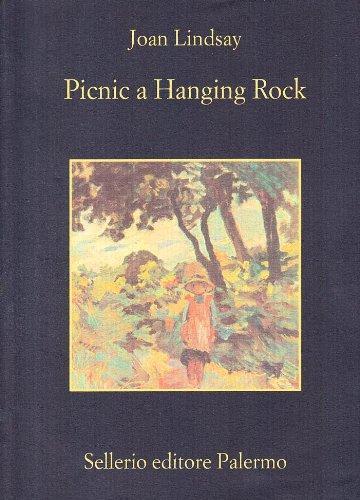Joan à Beckett Lindsay (16 November 1896 – 23 December 1984), also known as Lady Lindsay, was an Australian novelist, playwright, essayist, and visual artist. Trained in her youth as a painter, Lindsay published her first literary work in 1936 at age forty under a pseudonym, a satirical novel titled Through Darkest Pondelayo. Her second novel, Time Without Clocks, was published nearly thirty years later, and was a semi-autobiographical account of the early years of her marriage to artist Daryl Lindsay. In 1967, Lindsay published her most celebrated work, Picnic at Hanging Rock, a historical Gothic novel detailing the vanishing of three schoolgirls and their teacher at the site of a monolith during one summer. The novel sparked critical and public interest for its ambivalent presentation as a true story as well as its vague conclusion, and is widely considered to be one of the most important Australian novels. It was adapted into a 1975 film of the same name.She was also the author of several unpublished plays, and contributed essays, short stories, and poetry to numerous journals and publications throughout her career. After the death of Lindsay's husband in 1976, she spent her time involved in the local art …
Joan Lindsay
Dettagli autore
- Nascita:
- 16 Novembre 1896
- Morte:
- 23 Dicembre 1984
Collegamenti esterni
Joan à Beckett Lindsay (16 November 1896 – 23 December 1984), also known as Lady Lindsay, was an Australian novelist, playwright, essayist, and visual artist. Trained in her youth as a painter, Lindsay published her first literary work in 1936 at age forty under a pseudonym, a satirical novel titled Through Darkest Pondelayo. Her second novel, Time Without Clocks, was published nearly thirty years later, and was a semi-autobiographical account of the early years of her marriage to artist Daryl Lindsay. In 1967, Lindsay published her most celebrated work, Picnic at Hanging Rock, a historical Gothic novel detailing the vanishing of three schoolgirls and their teacher at the site of a monolith during one summer. The novel sparked critical and public interest for its ambivalent presentation as a true story as well as its vague conclusion, and is widely considered to be one of the most important Australian novels. It was adapted into a 1975 film of the same name.She was also the author of several unpublished plays, and contributed essays, short stories, and poetry to numerous journals and publications throughout her career. After the death of Lindsay's husband in 1976, she spent her time involved in the local art community in Melbourne, and was involved in several exhibitions. Her last published work, Syd Sixpence (1982), was her first and only work of children's literature. Lindsay died of stomach cancer in 1984, after which her home was donated to the Australian National Trust; the Lindsay estate now operates as a museum with her and her husband Daryl's artwork and personal effects.
